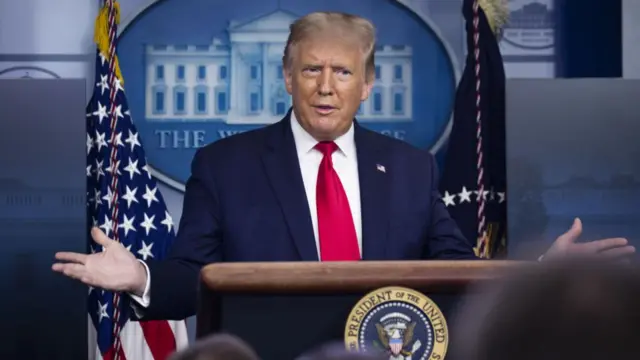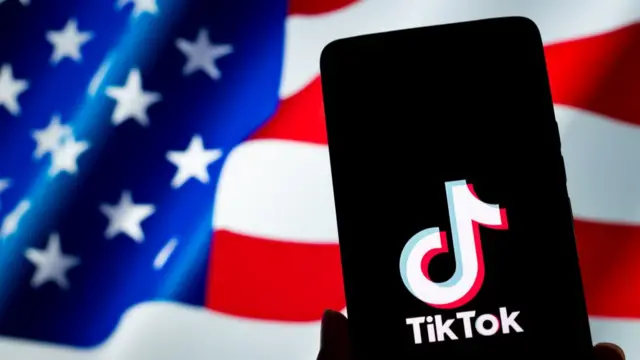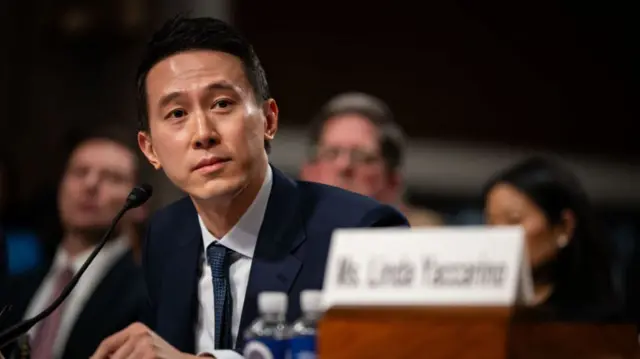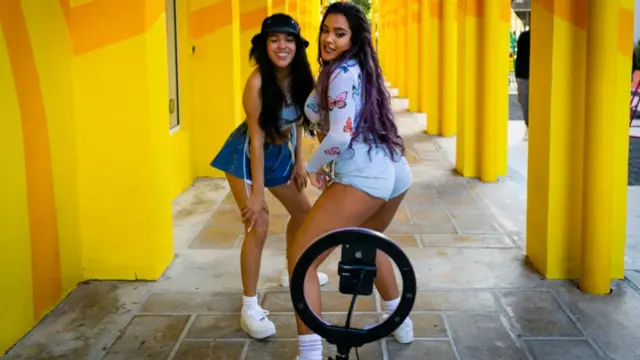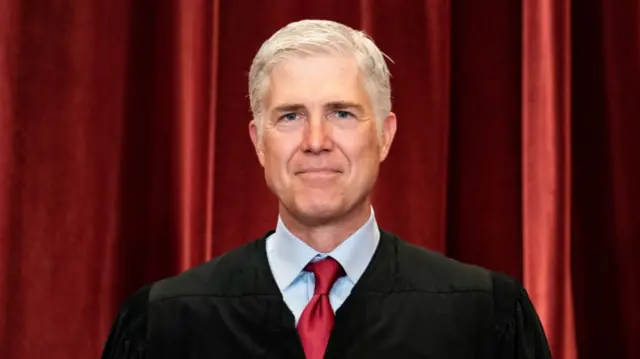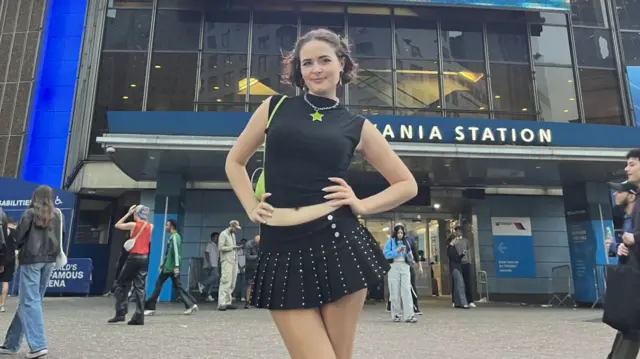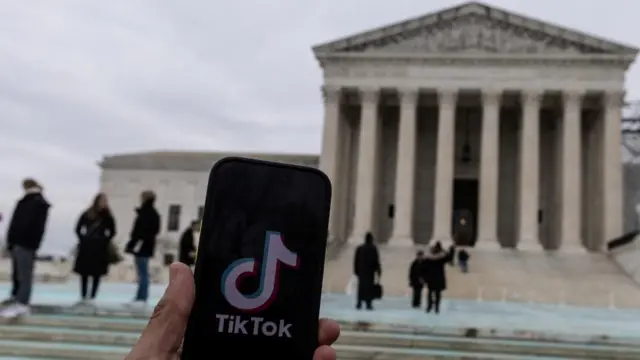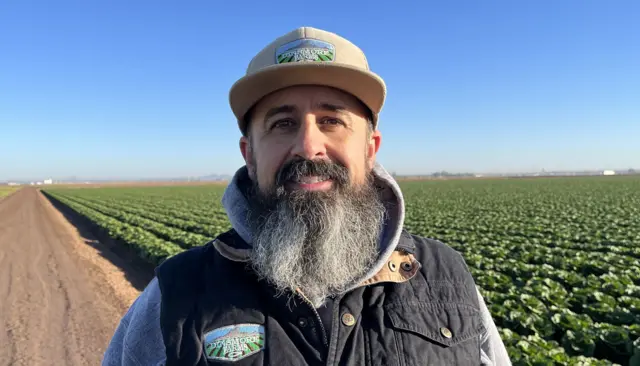TikTok set to be banned on Sunday after US Supreme Court shuts down appealpublished at 19:58 GMT 17 January
 Phil McCausland
Phil McCausland
Reporting from New York
The US Supreme Court's decision to uphold a law that could ban TikTok in America has disappointed millions of users across the country - many of whom earn money through its use.
But lawmakers argued the social media app's links to China posed a national security threat.
TikTok challenged the legislation in court, arguing it would violate free speech protections for the more than 170 million users it says it has in the US.
The nation's highest court rejected this claim unanimously, meaning TikTok must now find an approved buyer for the US version of the app or face removal from app stores and web hosting services.
One TikTok user told BBC News that the ruling was like "going to work and your office building's just vanished".
While the ban is legally slated to begin Sunday, the Biden administration said it would leave the enforcement of the matter to the incoming president, Donald Trump, who takes office on Monday.
Trump, who pushed for a sale or ban of TikTok in 2020, has vowed to make a decision regarding the platfrom in the "not too distant future". Since his election win, he has indicated that he would like to preserve the shortfrom video app's presence in the US - which has seemingly left TikTok's future openended.
Thanks for joining us for the BBC's live coverage. If you want to learn more about the story, check out these links:

